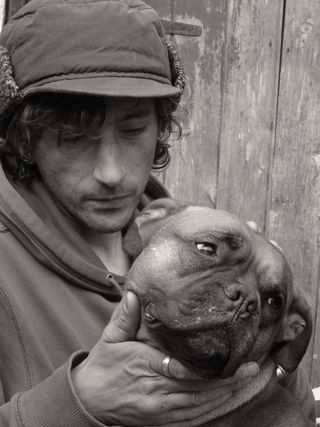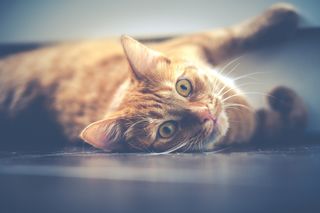Sharing our lives with our pets is one of the greatest joys in life that many animal lovers receive. Many would consider themselves proud pet parents of their four-legged companions. Just as with a human counterpart, having to say goodbye is an incredibly painful experience. It can be made even more painful by myths associated with pet loss, and the cultural stigma faced when grieving for a pet.
Many pet owners would also exclaim that the guilt of making a decision on behalf of their pet is painstaking. You might judge yourself for making the decision of euthanasia or second guess whether the course of treatment you chose was the right one. You might even blame yourself for whatever happened should it have been a pet that ran away, or one that didn’t show any symptoms of disease until it was too late for treatment. You might even be feeling angry, blaming yourself for not having the finances to pursue expensive surgery that may or may not prolong the life of your companion.
Why We So Easily Blame Ourselves

When we grieve, our psyche attempts to understand the nature of what is happening in our present experience. Most of us attempt to explore reasons for whatever is happening, or in other words, attempting to make sense of it. In doing so, we can project anger or blame ourselves, and others, throughout the grief process.
When we are faced with having to make difficult decisions, such as a course of treatment, we weigh the options with the information we receive from the Veterinarian, and what we know about our pet. We must even do the same when it comes to making the decision of euthanasia and knowing when the time is right for our pet.
Although we may logically recognize that the choice we are making is the best option, or the only option available, we throw heaps of blame upon ourselves until it feels like we cannot stand with the pressure.
What Is Guilt?
Psychology Today has an entire section devoted to guilt, and for good reason. They exclaim, “guilt and its handmaiden, shame, can paralyze us – or catalyze us into action. Appropriate guilt can function as social glue, spurring one to make reparations for wrongs. Excessive rumination about one’s failures, however, is a surefire recipe for resentment and depression.”
It’s important to remember that just as anxiety is an emotion that can be influenced, controlled, and changed (with practice), so can guilt. Unfortunately, unlike healthy anxiety that can promote action, guilt tends to promote lethargy, depression, and can feel so powerful that we don’t know what to do. It says to us you’re wrong and you should’ve done more or why didn’t you care more or how could you? It can feel like a verbally abusive relationship living inside our heads.
A helpful article entitled The Definitive Guide to Guilt, written by Susan Krauss Whitbourne, Ph.D., highlights in depth feelings of guilt and categorizes different experiences associated with it.
Guilting All Over Ourselves
We tell ourselves things like Why didn’t I catch that sooner? or Was that the right decision? even she or he must hate me for what I’ve done, and one of the biggest, I just killed them.

It’s important to remember that making decisions on behalf of our pets is one of the most loving and kind things we can do, especially when it comes to medical choices and end-of-life. We are held responsible for the years of love shared between us to not allow our pet to suffer throughout a disease process or within their final moments.
Although it can be hard, decisions should be based on what is best for our pet, and not ourselves. Many pet owners experience immense levels of guilt if they feel they prolonged pain or suffering to have more time with their pet. Our pets simply don’t live long enough, and it is common to want to have more time with them. The important thing to remember is that it is not the length of time spent together, but the quality of time that was shared, no matter how long or short that may be.
Moving Through And Identifying Our Guilt

It’s essential to continue supporting ourselves as we process through our feelings associated with guilt. It can be easy to want to “punish” ourselves, even if we are doing so at an unconscious level. Some might say that they don’t deserve to feel good, and their mind reflects that back to them.
In the beginning, it’s very normal to lose your appetite, socially withdraw, and find less joy in activities that used to promote positive feelings. If you are thinking thoughts such as “I don’t deserve to be happy” or “how could I even think that right now,” it is most likely an outcome of feeling guilty.
It’s important to try and identify our feelings of guilt, and how we may be placing undue burden, stress, and pain upon ourselves. Are we beating ourselves up emotionally because we are placing the blame of their death on ourselves? Are we beating ourselves up for the choices we made throughout a disease process, telling ourselves we should have, could have, ought to have done more?
Don’t Support Your Guilt
When we agree with the statements above, that we don’t deserve to heal because of our guilt, shame, and self – blame, we make the grieving and healing process much harder for ourselves. It can cycle into unhealthy coping and lead into depression and even feelings of suicide. Please know there is always help available and people that care at the National Suicide Hotline at 1-800-273-8255.
Although hard, it’s important to identify when we are guilting all over ourselves and continue self-care strategies throughout the process. It can be helpful to remember that our pets don’t know how to place blame. Living with our pets teaches us that every day is special. Pets show us to be kind, forgiving, and unconditionally loving.
It may be time to put that into practice for ourselves.
Adam Clark, LSW, AASW is a published writer, educator, and adjunct professor at the University of Denver’s Graduate School of Social Work. Adam focuses his work on the psychology behind the human-animal bond, specializing in endings and transitions. He is passionate about reducing the cultural stigma associated with pet loss, supporting pet owners, and educating veterinary professionals. Additional information on Adam and his current projects can be found at www.lovelosstransition.com, or he can best be reached at adam@lovelosstransition.com.


